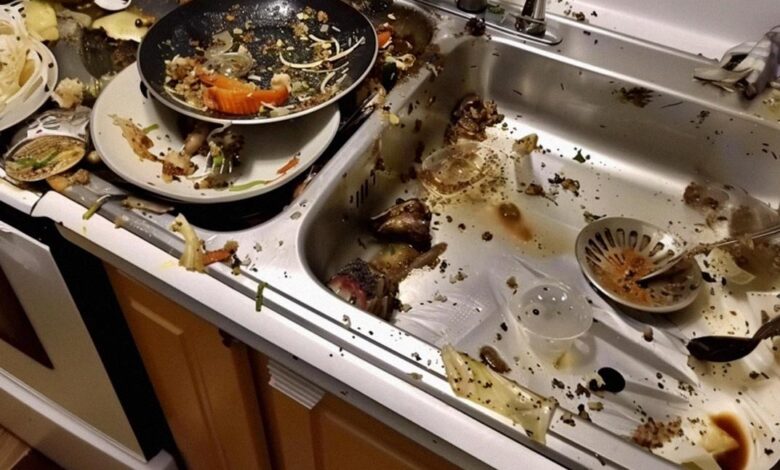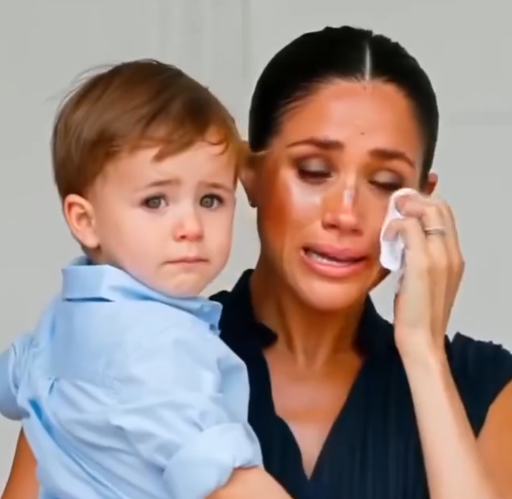
From the outside, we looked like the perfect family. People saw a comfortable home, two healthy boys, and a husband with a successful career. They saw me, a stay-at-home mom, and assumed my days were leisurely—coffee dates, folded laundry, and home-cooked meals on the table at six sharp. What they didn’t see was the quiet war I fought inside my own home.
I am Madison, 36 years old, married to Tyler, who is 38. For years, I endured his sharp words, constant belittling, and endless criticism. He never raised a hand against me, but his voice, his tone, his calculated jabs left wounds no one else could see. Every day began with complaints, every evening ended with me shrinking smaller under the weight of his disapproval.
The breaking point wasn’t one big explosion. It came slowly, like water dripping on stone, until one day, my body simply couldn’t take it anymore.
Tyler’s favorite insult was always tied to his “lucky” white shirt. If it wasn’t washed, dried, and hanging exactly where he expected it, he would sneer, “Other women work full-time and raise kids. You? You can’t even keep my shirt clean.” To him, I was nothing but a leech, a woman living off his money, eating his food, and failing at even the simplest tasks.
On the Tuesday that changed everything, I woke up already feeling weak. I had been dizzy and nauseous for days, but I pushed through, as mothers do. I packed the boys’ lunches, swept the crumbs, and even made banana pancakes, hoping maybe—just maybe—Tyler would smile.
When he stomped into the kitchen, I forced a cheerful “Good morning.” The boys echoed me with their innocent enthusiasm. He ignored us, grabbed a piece of dry toast, and muttered about a big meeting. I mentally reminded myself—the shirt. That cursed shirt.
“Madison, where’s my white shirt?” he barked from the bedroom.
I walked in, wiping pancake batter off my hands. “I just put it in the wash.”
His eyes narrowed like I’d committed a crime. “Are you kidding me? I told you days ago! You knew I needed it for today. You can’t even manage one thing? What do you even do all day?”
The words sliced through me. I tried to explain that I hadn’t been feeling well, that I was exhausted. But he wasn’t listening. He was pacing, ranting about how useless I was, how his coworker’s wife managed a career and kids while I, with “nothing to do,” couldn’t handle laundry.
When he finally stormed out, slamming the door, my hands were shaking. The nausea worsened. Pain stabbed through my abdomen like knives. By noon, I collapsed on the kitchen floor as the boys screamed.
Ethan, my seven-year-old, ran to our neighbor Kelsey, while little Noah sobbed by my side. Kelse
When Tyler returned home that evening, expecting dinner and order, he walked into chaos. Toys scattered across the floor, lights off, no dinner simmering on the stove. Then he saw my purse abandoned on the counter, the fridge half-open, and a note lying on the kitchen floor. Four words in my handwriting:
I want a divorce.
Panic replaced his anger. He frantically called my phone, then my sister, only to be told the truth: I was in the hospital, in serious condition. Worse yet, I was pregnant with our third child.
When he arrived at the hospital, I was hooked up to IVs and monitors. For the first time in years, I saw fear in his eyes. “I didn’t know,” he whispered, gripping my hand. “I didn’t know you were this sick.”
But the truth was, he never wanted to know. My exhaustion, my dizziness, my pain—he dismissed it all because it inconvenienced him.
While I recovered, something shifted in Tyler. Maybe it was guilt. Maybe it was the realization that he almost lost me. For once, he stepped up. He cooked, cleaned, bathed the boys, and even read them bedtime stories. He cried on the phone to my mother, admitting, “How does she do this every day? How did I never see it?”
But I hadn’t forgotten the years of cruelty. I hadn’t forgotten writing that note with trembling hands before collapsing. So when I was strong enough, I filed for divorce. I didn’t scream or accuse. The note had said everything.
To my surprise, Tyler didn’t fight me. He didn’t beg. He just whispered, “I deserve this.”
And yet, he didn’t disappear. He showed up—with groceries, with help, with steady presence. He went to therapy. He wept at our daughter’s ultrasound, cut her umbilical cord, and whispered, “She’s perfect.”
For the first time in years, I saw the man I once loved. But I had learned a hard truth: apologies aren’t change. Love without respect is not love at all.
Now, months later, Tyler is still trying. He’s more present with the boys than he ever was, and he treats me with a softness I once begged for. Sometimes the boys ask if we’ll live together again, and I only say, “Maybe.” Because healing isn’t linear, and scars don’t vanish just because someone finally noticed the damage.
Maybe one day, when the wounds stop aching, I’ll believe in him again. But for now, I carry both the scars of his words and the strength of knowing I finally chose myself.

